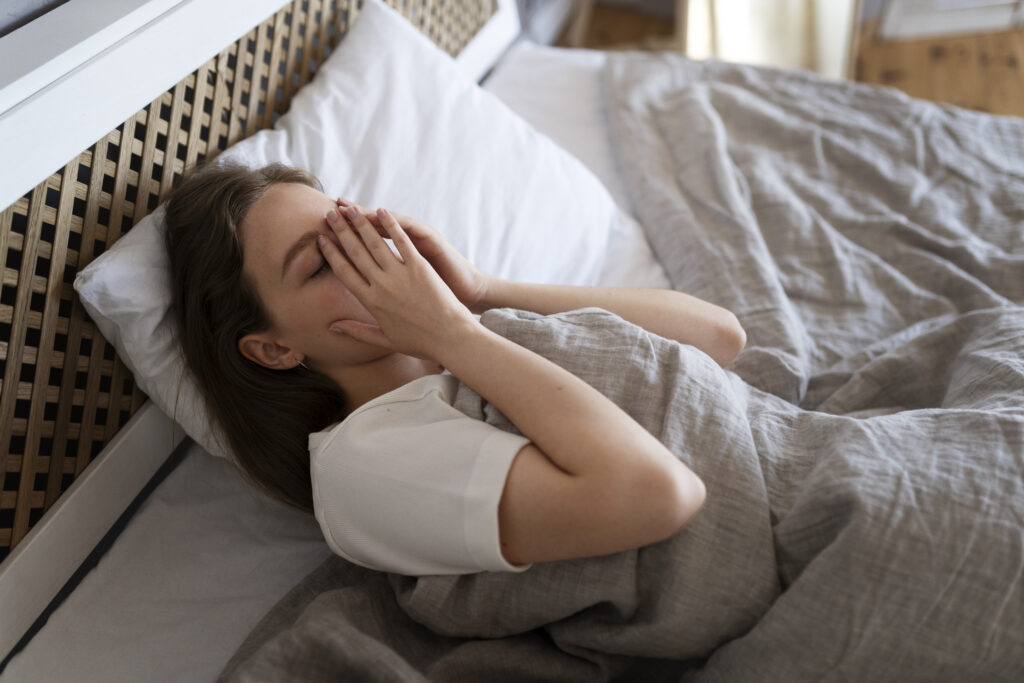The Effects of Alcohol on Sleep
Alcohol is often perceived as a sedative, with many people using it as a means to unwind and promote sleep. However, the relationship between alcohol and sleep is complex and multifaceted, with significant implications for overall health and well-being. Understanding how alcohol affects sleep can help others make informed choices about its consumption, particularly for those struggling with sleep disorders like insomnia.
Impact of Alcohol on Sleep Architecture
Alcohol can influence sleep architecture, which refers to the structure and pattern of sleep cycles throughout the night. Initially, alcohol may help to facilitate sleep onset, leading to a quicker transition into sleep. However, this effect is typically short-lived. Research indicates that while alcohol can increase total sleep time, it often disrupts the normal progression of sleep stages, particularly REM (rapid eye movement) sleep, which is crucial for cognitive function and emotional regulation (Roehrs & Roth, 2001).
Studies have shown that alcohol consumption is associated with reduced REM sleep and increased wakefulness during the second half of the night (Ebrahim et al., 2013). This disruption can lead to feelings of fatigue and decreased cognitive performance the following day. Additionally, as the body metabolizes alcohol, withdrawal effects can lead to increased awakenings and a lower quality of sleep overall (Roehrs & Roth, 2001).
Consequences of Alcohol-Related Sleep Disturbances
The consequences of poor sleep quality linked to alcohol consumption can be profound. Chronic sleep disturbances are associated with a range of health issues, including mood disorders, cognitive impairments, and an increased risk of chronic conditions such as obesity and cardiovascular diseases (Walker, 2017). Furthermore, poor sleep can exacerbate the desire for alcohol, creating a vicious cycle wherein individuals consume alcohol to cope with sleep disturbances, only to find that it further hampers their sleep quality.
Alcohol and Insomnia
For individuals suffering from insomnia, alcohol may seem like a tempting short-term solution. However, the long-term use of alcohol as a sleep aid can perpetuate insomnia symptoms. As tolerance develops, individuals may find themselves consuming larger quantities to achieve the same sedative effects, further disrupting their sleep patterns (Brower, 2001). This cycle can lead to a reliance on alcohol, complicating both the treatment of insomnia and the risk of developing alcohol use disorders.
Cognitive Behavioral Therapy for Insomnia (CBT-I)
Given the detrimental effects of alcohol on sleep, particularly for those struggling with insomnia, it is essential to consider alternative treatment options. Cognitive Behavioral Therapy for Insomnia (CBT-I) is a structured program that has been shown to be effective in treating insomnia. Unlike traditional approaches that may rely on medication, CBT-I focuses on changing thoughts and behaviors that contribute to sleep problems.
CBT-I typically includes components such as sleep restriction, stimulus control, cognitive restructuring, and relaxation techniques. Sleep restriction involves limiting the amount of time spent in bed to match actual sleep time, which can help consolidate sleep. Stimulus control encourages a stronger association between the bed and sleep, promoting a consistent sleep environment (Morin et al., 2006).
Cognitive restructuring aims to change negative thoughts about sleep and insomnia, while relaxation techniques help to reduce anxiety and promote a state of calm conducive to sleep. Research has demonstrated that CBT-I can lead to significant improvements in sleep quality, with benefits often lasting long after the completion of the program (Trauer et al., 2015).
Conclusion
In summary, while alcohol may initially appear to aid sleep, its long-term effects can lead to significant disruptions in sleep architecture, particularly REM sleep. This disruption can exacerbate insomnia symptoms and lead to a cycle of reliance on alcohol as a sleep aid. For those struggling with insomnia, CBT-I offers a promising, evidence-based alternative that addresses the underlying cognitive and behavioral factors contributing to sleep disturbances. By focusing on healthier sleep practices and breaking the cycle of alcohol dependence, individuals can achieve better sleep quality and overall health.
References
– Brower, K. J. (2001). Insomnia, alcoholism, and relapse. *Alcoholism: Clinical and Experimental Research*, 25(5), 883-889.
– Ebrahim, I. O., Shapiro, C. M., Williams, A. J., & Fenwick, P. (2013). Alcohol and sleep I: Effects on normal sleep. *Alcoholism: Clinical and Experimental Research*, 37(4), 539-549.
– Morin, C. M., Culbert, J. P., & Schwartz, S. M. (2006). Nonpharmacological interventions for insomnia: A systematic review and meta-analysis of randomized controlled trials. *Sleep*, 29(11), 1398-1414.
– Roehrs, T., & Roth, T. (2001). Sleep, sleepiness, and alcohol use. *Alcohol Research & Health*, 25(2), 101-109.
– Trauer, J. M., Qian, M. Y., Doyle, J. S., & et al. (2015). Cognitive behavioral therapy for chronic insomnia: A systematic review and meta-analysis. *Annals of Internal Medicine*, 163(3), 191-203.
– Walker, A. M. (2017). Why We Sleep: Unlocking the Power of Sleep and Dreams. Scribner.







